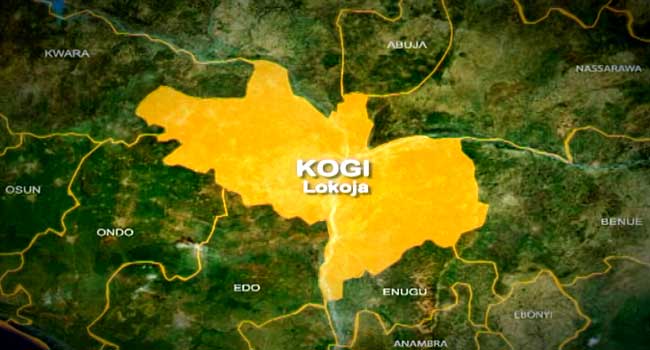Nigeria stands at a critical juncture in its quest for industrialisation and educational equity. The persistent divide between Higher National Diploma (HND) holders and Bachelor’s degree holders, has long stifled the nation’s potential, creating an unjust hierarchy that undermines our collective progress. It is high time we abolished this outdated dichotomy and embrace a more inclusive approach that recognises the value each qualification brings to our society.
The National Assembly has commendably taken steps to address this issue by passing a bill aimed at eliminating the discrimination between HND and Bachelor’s degree holders. This legislative effort reflects a growing acknowledgment of the essential role that polytechnic education plays in our nation’s development. However, the bill awaits presidential assent—a decisive action that would enshrine this commitment into law and signal a new era of fairness and opportunity.
An Historical Context
Polytechnics have historically been engines of innovation and industrial growth. Originating during the Industrial Revolution in the United Kingdom, these institutions provided practical education that fuelled economic expansion. Nigeria adopted this model with the hope of mirroring such success, establishing polytechnics to nurture technical expertise and support industrialisation.
Yet, unlike the UK, Nigeria has struggled to harness the full potential of its polytechnic graduates. The marginalisation of HND holders has not only dampened individual aspirations but has also impeded our national progress. Instead of leveraging their skills, we have allowed an artificial hierarchy to limit contributions that could drive technological advancement and economic diversification.
The Impact of the Dichotomy on Industrialisation
The consequences of this divide are palpable. In the latter half of the 20th Century, Nigeria saw a proliferation of industries and financial institutions. However, many of these enterprises have since faltered or collapsed. A contributing factor is the underutilisation of technically skilled professionals—HND holders—who are often relegated to subordinate roles despite their expertise.
By not fully integrating these individuals into key positions, we have missed opportunities to innovate and adapt in an increasingly competitive global market. The dichotomy fosters an environment where talent is overlooked, and meritocracy is undermined, ultimately hindering our industrial and technological ambitions.
Elevating HND Holders for National Advancement
Eliminating the disparity between HND and Bachelor’s degree qualifications is more than a gesture of fairness; it is a strategic imperative. Recognising HND holders as equals will:
Boost Industrial Growth: By valuing technical skills, we can accelerate industrialisation efforts, fostering innovation and efficiency.
Enhance Educational Appeal: Elevating the status of HND qualifications will attract more students to polytechnics, strengthening our technical workforce.
Motivate the Workforce: Equal opportunities will improve morale among HND holders and lecturers, leading to increased productivity and commitment.
Reduce Brain Drain: Providing ample opportunities domestically will discourage skilled professionals from seeking employment abroad.
Align with Global Practices: Many countries prioritize technical education, and by doing the same, we enhance our competitiveness on the international stage.
The Role of the Presidency
The bill passed by the National Assembly represents a significant stride toward educational equity. However, without presidential assent, this progress remains stalled. Granting assent is not merely procedural—it is a powerful affirmation of our nation’s commitment to justice and development.
Presidential approval would:
Eradicate Institutional Bias: Legally enforce equal treatment in employment, remuneration, and promotion across all sectors
Catalyze Economic Growth: Empower a broader segment of the workforce to contribute meaningfully to national projects and initiatives.
Demonstrate Leadership: Showcase a dedication to addressing systemic issues that hinder our nation’s advancement.
Addressing Concerns and Embracing Change
Some may argue that the dichotomy ensures a standard of education or preserves certain professional benchmarks. However, this perspective overlooks the rigorous training and practical expertise that HND holders possess. Polytechnics emphasize hands-on experience and problem-solving skills—attributes that are invaluable in industries requiring technical proficiency.
By harmonizing the recognition of these qualifications, we are not diminishing standards but rather enriching our talent pool. It is an opportunity to foster collaboration between graduates of universities and polytechnics, leveraging diverse skill sets to tackle complex challenges.
A Call to Action
The future of Nigeria’s industrial and technological sectors hinges on the decisions we make today. We must collectively advocate for the presidential assent of the bill abolishing the HND/bachelor’s degree dichotomy. This action will unlock the potential of countless professionals eager to contribute to our nation’s growth.
I urge the Presidency to consider the profound impact of this legislation. By signing the bill into law, we affirm our commitment to equity, progress, and the belief that every Nigerian, regardless of their educational pathway, has a vital role to play in shaping our future.
Conclusion
The time for change is now. We stand at the threshold of a transformative moment that can redefine our educational landscape and invigorate our economy. Let us seize this opportunity to dismantle unnecessary barriers, embrace inclusivity, and empower all citizens to participate fully in the national endeavor.
Ending the HND/bachelor’s degree dichotomy is not just about correcting an injustice; it is about unlocking the full spectrum of Nigerian talent and ingenuity. Together, we can build a more equitable society and a more robust economy.
Thank you for engaging in this crucial dialogue. Let us move forward with determination and unity toward a brighter, more inclusive future for Nigeria.
Achiatar is the President, Association of Private Polytechnics in Nigeria.












